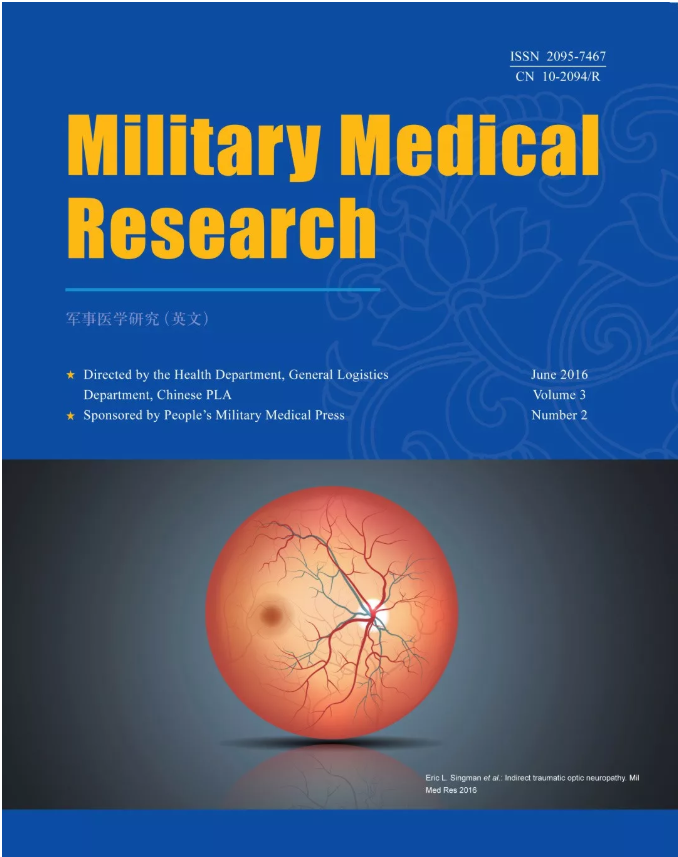Frailty as a sequela of burn injury: a post hoc analysis of the “RE-ENERGIZE” multicenter randomized-controlled trial and the National Health Interview Survey
IF 16.7
2区 医学
Q1 MEDICINE, GENERAL & INTERNAL
引用次数: 0
Abstract
With advancements in burn treatment and intensive care leading to decreased mortality rates, a growing cohort of burn survivors is emerging. These individuals may be susceptible to frailty, characterized by reduced physiological reserve and increased vulnerability to stressors commonly associated with aging, which significantly complicates their recovery process. To date, no study has investigated burns as a potential risk factor for frailty. This study aimed to determine the short-term prevalence of frailty among burn survivors’ months after injury and compare it with that of the general population. A post hoc analysis was conducted on the Randomized Trial of Enteral Glutamine to Minimize the Effects of Burn Injury (RE-ENERGIZE) trial, an international randomized-controlled trial involving 1200 burn injury patients with partial- or full-thickness burns. Participants who did not complete the 36-Item Short Form Health Survey (SF-36) questionnaire were excluded. Data for the general population were obtained from the 2022 National Health Interview Survey (NHIS). Frailty was assessed using the FRAIL (Fatigue, Resistance, Ambulation, Illness, Loss of weight) scale. Due to lack of data on loss of weight, for the purposes of this study, malnutrition was used as the fifth variable. Illness and malnutrition were based on admission data, while fatigue, resistance, and ambulation were determined from post-discharge responses to the SF-36. The burn cohort and general population groups were matched using propensity score matching and compared in terms of frailty status. Within the burn group, patients were divided into different subgroups based on their frailty status, and the differences in their (instrumental) activities of daily living (iADL and ADL) were compared. A multivariable analysis was performed within the burn cohort to identify factors predisposing to frailty as well as compromised iADL and ADL. Out of the 1200 burn patients involved in the study, 600 completed the required questionnaires [follow-up time: (5.5 ± 2.3) months] and were matched to 1200 adults from the general population in the U.S. In comparison to the general population, burn patients exhibited a significantly higher likelihood of being pre-frail (42.3% vs. 19.8%, P < 0.0001), or frail (13.0% vs. 1.0%, P < 0.0001). When focusing on specific components, burn patients were more prone to experiencing fatigue (25.8% vs. 13.5%, P < 0.0001), limited resistance (34.0% vs. 2.7%, P < 0.0001), and restricted ambulation (41.8% vs. 3.8%, P < 0.0001). Conversely, the incidence rate of illness was observed to be higher in the general population (1.2% vs. 2.8%, P = 0.03), while no significant difference was detected regarding malnutrition (2.3% vs. 2.6%, P = 0.75). Furthermore, in comparison with robust burn patients, it was significantly more likely for pre-frail and frail patients to disclose compromise in ADL and iADL. The frail cohort reported the most pronounced limitation. Our findings suggest a higher incidence of post-discharge frailty among burn survivors in the short-term following injury. Burn survivors experience compromised fatigue, resistance, and ambulation, while rates of illness and malnutrition were lower or unchanged, respectively. These results underscore the critical need for early identification of frailty after a burn injury, with timely and comprehensive involvement of a multidisciplinary team including burn and pain specialists, community physicians, physiotherapists, nutritionists, and social workers. This collaborative effort can ensure holistic care to address and mitigate frailty in this patient population.作为烧伤后遗症的虚弱:对 "RE-ENERGIZE "多中心随机对照试验和全国健康访谈调查的事后分析
随着烧伤治疗和重症监护技术的进步,死亡率不断降低,越来越多的烧伤幸存者正在出现。这些人可能容易出现虚弱,其特点是生理储备减少,更容易受到与衰老相关的压力的影响,这使他们的康复过程变得更加复杂。迄今为止,还没有研究将烧伤作为导致虚弱的潜在风险因素进行调查。本研究旨在确定烧伤幸存者在伤后数月内体弱的短期发生率,并将其与普通人群进行比较。这项国际随机对照试验涉及 1200 名部分或全身烧伤的烧伤患者。未完成 36 项简表健康调查 (SF-36) 问卷的参与者被排除在外。普通人群的数据来自 2022 年全国健康访谈调查(NHIS)。虚弱程度采用 FRAIL(疲劳、阻力、行走、疾病、体重减轻)量表进行评估。由于缺乏有关体重减轻的数据,本研究将营养不良作为第五个变量。疾病和营养不良以入院数据为基础,而疲劳、抵抗力和活动能力则根据出院后对 SF-36 的反应来确定。烧伤队列组和普通人群组采用倾向得分匹配法进行匹配,并就虚弱状态进行比较。在烧伤组中,根据患者的虚弱状况将其分为不同的亚组,并比较其(工具性)日常生活活动(iADL 和 ADL)的差异。在烧伤组群中进行了多变量分析,以确定导致虚弱以及 iADL 和 ADL 受损的因素。在参与研究的 1200 名烧伤患者中,有 600 人完成了所需的问卷调查[随访时间:(5.5 ± 2.3)个月],并与来自美国普通人群的 1200 名成年人进行了比对。与普通人群相比,烧伤患者表现出明显更高的前期虚弱(42.3% 对 19.8%,P < 0.0001)或虚弱(13.0% 对 1.0%,P < 0.0001)的可能性。从具体内容来看,烧伤患者更容易出现疲劳(25.8% 对 13.5%,P < 0.0001)、抵抗力受限(34.0% 对 2.7%,P < 0.0001)和行走受限(41.8% 对 3.8%,P < 0.0001)。相反,普通人群的发病率更高(1.2% vs. 2.8%,P = 0.03),而营养不良方面则无明显差异(2.3% vs. 2.6%,P = 0.75)。此外,与体格健壮的烧伤患者相比,虚弱前患者和虚弱患者更有可能在日常活动能力(ADL)和综合日常活动能力(iADL)方面受到影响。虚弱人群报告的限制最为明显。我们的研究结果表明,烧伤幸存者出院后短期内体弱的发生率较高。烧伤幸存者的疲劳度、抵抗力和行动能力受到影响,而患病率和营养不良率则分别较低或保持不变。这些结果突显了烧伤后早期识别虚弱状态的关键需求,并需要包括烧伤和疼痛专家、社区医生、理疗师、营养师和社会工作者在内的多学科团队及时、全面的参与。这种合作可以确保提供全面的护理,以解决和减轻这类患者的体弱问题。
本文章由计算机程序翻译,如有差异,请以英文原文为准。
求助全文
约1分钟内获得全文
求助全文
来源期刊

Military Medical Research
Medicine-General Medicine
CiteScore
38.40
自引率
2.80%
发文量
485
审稿时长
8 weeks
期刊介绍:
Military Medical Research is an open-access, peer-reviewed journal that aims to share the most up-to-date evidence and innovative discoveries in a wide range of fields, including basic and clinical sciences, translational research, precision medicine, emerging interdisciplinary subjects, and advanced technologies. Our primary focus is on modern military medicine; however, we also encourage submissions from other related areas. This includes, but is not limited to, basic medical research with the potential for translation into practice, as well as clinical research that could impact medical care both in times of warfare and during peacetime military operations.
 求助内容:
求助内容: 应助结果提醒方式:
应助结果提醒方式:


